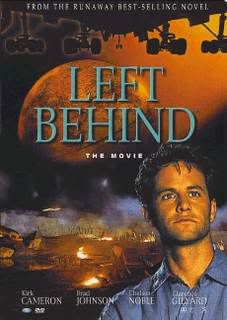
Every few years, a novel surfaces in Christian culture that soon becomes required reading. These books almost always contain either spiritual allegory or a straight-up portrayal of what the rapture could be like.

The Pilgrim's Progress is an allegory that may be one of the best-known works of Christian fiction. It's definitely one of the oldest.
The Chronicles of Narnia, an allegorical series, were popular in the 1950s and have now become standard childhood reading and are practically revered as Biblical text.
A Thief in the Night, a nightmarish prediction of the rapture's happenings, was the big Christian novel in the 1970s.
This Present Darkness, an imagined account of "spiritual warfare" (a term exclusive to evangelical Christian culture), was the most popular Christian novel in the 1980s. (Michael W. Smith even wrote an instrumental song about it! Squeal!) In the 1990s the
Left Behind series was another fictional-yet-based-on-scripture rapture account. According to Amazon,
The Shack is the most popular work of Christian fiction right now.

In
this Kindlings podcast, the panel notes that
The Shack would have been laughed out of the church twenty years ago. This is probably true. "You mean twenty years from now our church will sponsor study groups based on a book in which God is portrayed as a black woman named Papa? Really?" A Seattle pastor with questionable beliefs even calls The Shack
"pro-goddess worship."
The fictional books that are popular in Christian culture are praised and criticized for the liberties taken in portraying the unseen. The unseen is where it gets messy. These books could be heretical, they could be bad art, they could be a way of exploring what we still don't know and yet want to give shape to. They could be based on wanting to name and make tangible that which God doesn't answer. When God remains silent, people get antsy. We want facts, we want black-and-white. When God is silent, is it possible that we create idols in place of the messy and difficult act of having faith?
